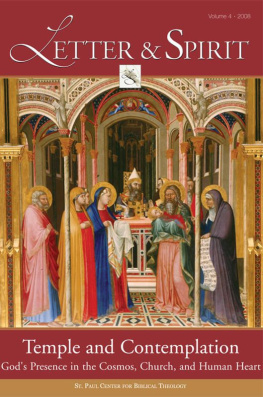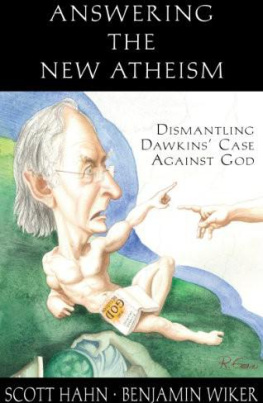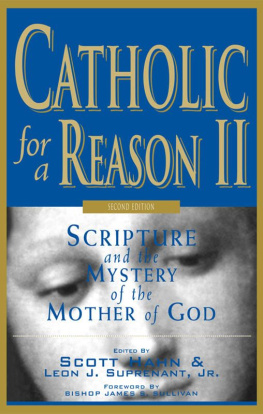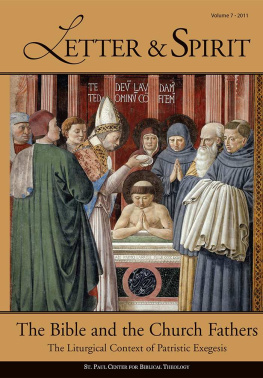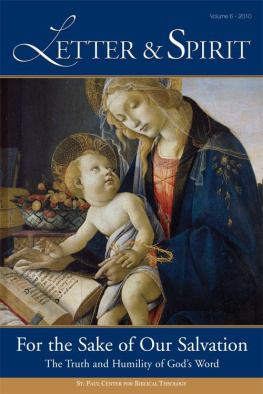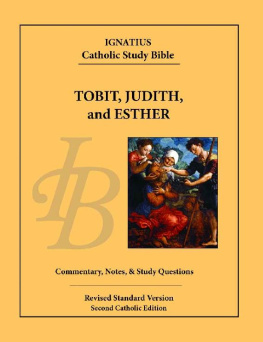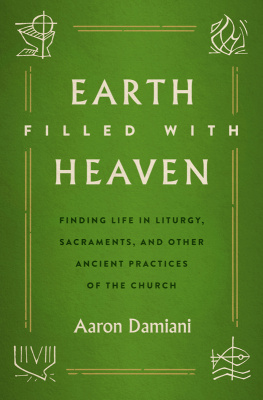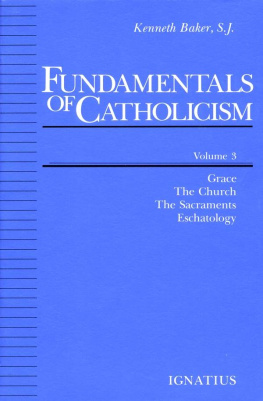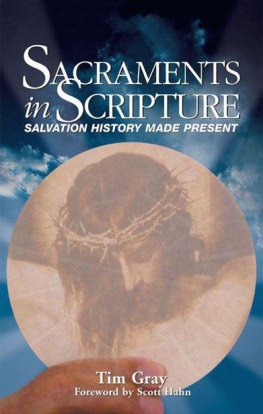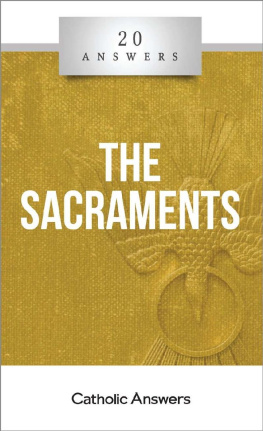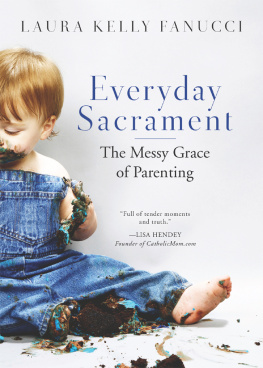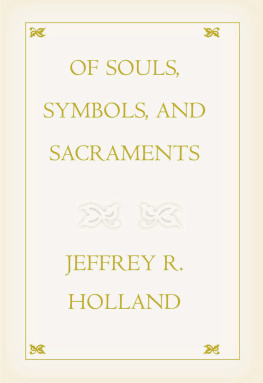

CONTENTS
To Jeremiah
CHAPTER 1

A B ORE ,
I S WORE

I WAS THE kind of first-year graduate student who believed in his own resume. I had arrived, on scholarship, at a prestigious evangelical seminary after a stellar undergraduate careerand in the first semester of my masters program, Id scored straight As.
It was second semester now, and I walked the scenic hundred acres of Gordon-Conwell Theological Seminary as if they were my inheritance. Beside me walked my bright and beautiful bride, who was also a graduate student. Kimberly and I were newlyweds, and when I held forth on any subject, her face radiated love, intelligent interest, and, usually, perfect agreement. Her loveliness and her love for me seemed a visible sign of Gods blessing upon my lifeand a seal on my high self-estimation.
No one was as sure of the law of gravity as I was sure of the soundness of my judgments.
One afternoon, Kimberly and I were leaving class when we saw a friend of ours in the buildings vestibule. George was a good fellow. He was a highly motivated student, like me. And he considered himself a staunch Calvinist, though I rated myself even stauncher. George was also a voracious reader, like me. So whenever I saw him with new books, Id ask him for titles. That afternoon, he was carrying books. So, George, what are you reading, I asked, anything good?
His eyes lit up. Yes, Scott! And he shook a book out from the middle of the pile. Calvin on the sacraments.
I took the book and looked at its drab cover: Calvins Doctrine of the Word and Sacraments, by Ronald S. Wallace. As surely as Georges eyes lit up, mine must have dimmed. I handed it back to him and blurted out the first thing that came to my mind: Frankly, George, sacraments bore me.
I was merely speaking honestly. Though I didnt care to admit it, I often found myself distracted in church, my mind wandering, when the time came to administer baptism or the Lords Supper. Ritual was not the thing that got me up early and kept me up late. I was hungry for dynamic biblical teaching and preaching; and sacraments suggested, to my mind at least, the exact opposite: a mechanical way of approaching religionritualistic, ceremonial, bordering on superstitious.
In any event, the sacraments were peripheral to most Protestant discussions of salvation and justification, the matters that really interested me.
Sacramentswell, frankly, they bored me, and I said so.
Bored Again
I hadnt meant to say anything rude or scandalous. But I could see right away that I had. No one responded. Kimberly just arched an eyebrow in silent shock. George took his book back with a polite smile and a shrug and said he had to be going.
Kimberly and I continued out the door and on to dinner. I asked her why my simple statement had been such an immediate conversation-stopper.
She looked at me with a pained smile and repeated what I had said: Sacramentsbore me. After a pause, she added, Scott, I dont think its safe to say that.
It helped that she was a pastors daughter. She went on to explain that, no matter how I felt about the sacraments, it was clear from the Scriptures that Jesus Christ had established both baptism and the Lords Supper. She reminded me that, in the previous semester, one of my favorite professors, M. G. Kline, an Old Testament scholar, had convinced us to see the sacraments as covenant oaths that sealed and renewed our personal relationship with Jesus Christ. To dismiss these oaths was to flirt with ingratitude and maybe even blasphemy.
Kimberly brought my lesson to a close with a smile and a pun. Dont be surprised, Scott, she said, when you go before the Lord, if you discover that sacraments truly bore youall the way to heaven!
I wasnt so sure. But still, Id begun to trust her intuitions. After finding a copy of the book that George was reading, I discovered why he was so excited. Over the following months, I found myself learning more about the sacraments in dynamic terms. I started to see their drama, passion, grandeur, splendor, promise, and power.
I soon ranked the Wallace book among my favorites. A few years later, when I was a Protestant minister teaching in a Protestant seminary, I even used it as a course textbook.
Signs, Signs, Everywhere a Sign
My education in the sacraments was only beginning. As a Protestant, I recognized only two of the seven sacraments observed by the Catholic Church: baptism and the Lords Supper, and I knew them only in a limited way, as Calvinist doctrine stops far short of the realism that marks the Catholic tradition of the sacraments.
Still, as I read the Bible, I began to glimpse something more. Since Kimberly had shaken me out of my complacency, I was struck by certain details I had always glossed over. Now I noticed that God had a particular and characteristic way of dealing with His people down through the ages. He made covenants with them, and He always sealed those covenants not with an abstract lecture on the nature of salvation, obligation, and law but with an outward sign, a physical sign. When God made His covenant with Noah, He set a rainbow in the sky as a sign of the covenant (Gen 9:12). When God made His covenant with Abraham, He instructed the patriarch to have every male among youcircumcised (Gen 17:10). When God made His covenant with Moses, Moses extended it to the people by sprinkling them with the blood of sacrificial animals: Behold the blood of the covenant which the Lord has made with you (Ex 24:8).
These words and signs in the Old Testament would come to fulfillment in the New Testament. Jesus would speak of His saving work as a new covenant in My blood (Lk 22:20), and He would announce this at the moment He established the sacrament of the Eucharist, or the Lords Supper, as we Presbyterians called it.
Moreover, Jesus spoke of the sacraments as essential to salvation. Of baptism, He said, unless one is born of water and the Spirit, he cannot enter the kingdom of God (Jn 3:5). Of the Eucharist, He said, unless you eat of the flesh of the Son of man and drink His blood, you have no life in you (Jn 6:53).
The sacraments, then, were anything but boring. They were actions with ultimate consequences. They were matters of life and death, heaven or hell. God Himself spoke of them only in the most dramatic of terms. Jesus apostles remained faithful to His example, and they too put matters starkly. St. Paul warned that Christians who lacked proper reverence for the sacraments brought divine judgment upon themselves and were justly punished with illnesses and even death (see 1 Cor 11:2930). Kimberly had good reason, then, to wonder about the safety of someone who belittled the sacraments, especially when that someone was an aspiring theologianand her husband.
Get Real
Because of a providential encounter with a fellow student, I learned to read the Scriptures in a new way, a sacramental way. And I could not help but be changed by the sacramental story I began to piece together. The Bible, in both the Old and New Testaments, seemed to speak of Gods sacraments with a powerful realism. These actions were symbolic, but they were more than just symbols. They were memorials, but they were not just reminders. They were rites of passage, but they were more than just rituals. The sacraments were divine actions on the order of the creation of the universe. They marked the moments in historyworld history, salvation history, and personal historywhen God was making a new start with His people.
Next page

